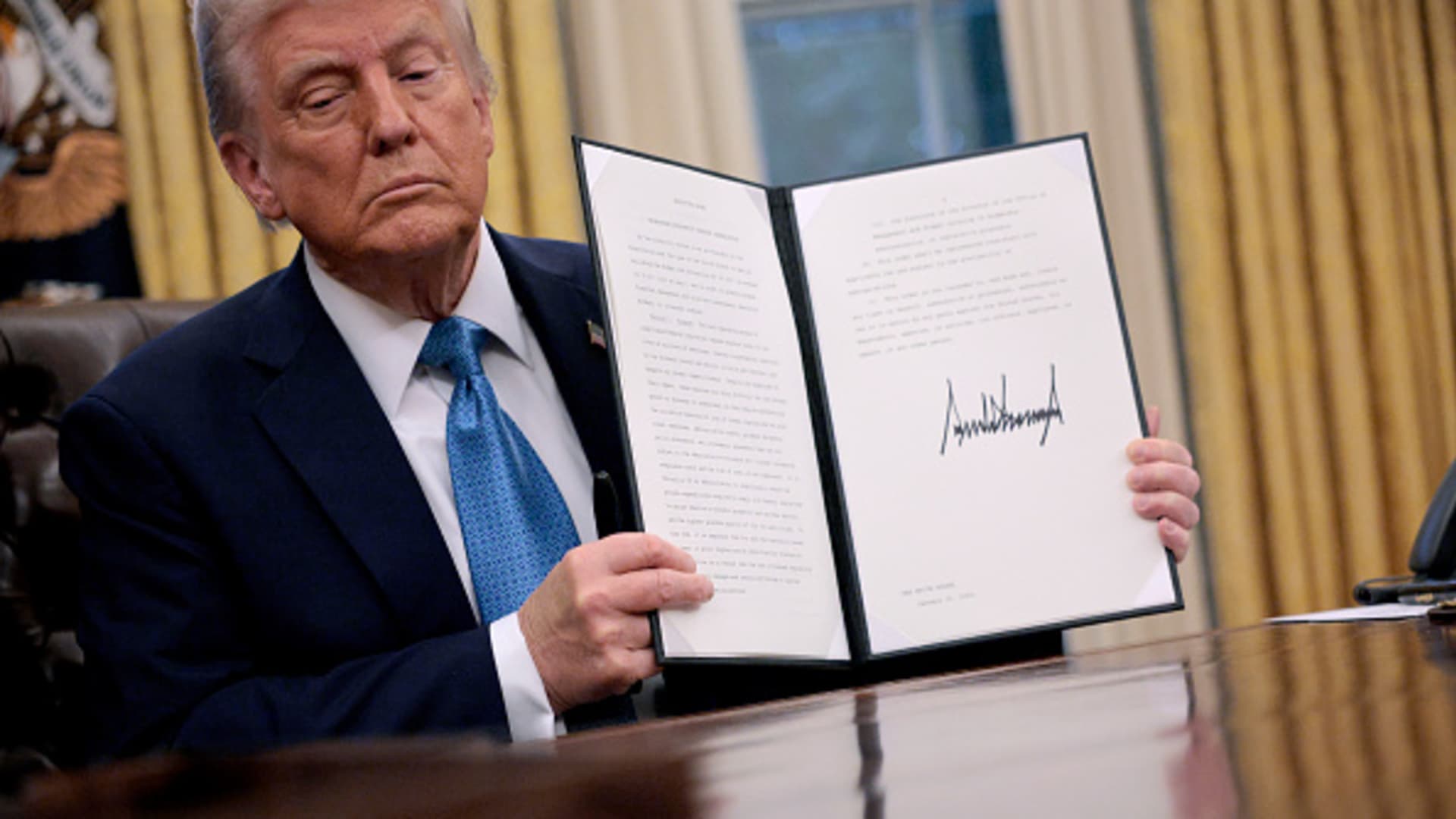Highlights:
– President Trump initiated tariffs on multiple countries, sparking market volatility.
– Automakers, food and beverage companies, retailers, and railroads are among the most affected industries.
– Chinese e-commerce firms are also impacted by the new tariffs.
The Impact of President Trump’s Tariffs on Global Trade
President Trump’s recent implementation of tariffs against various countries has sent shockwaves through the U.S. stock market. The move has the potential to kickstart a global trade war, impacting companies across several sectors with international supply chains. These tariffs not only increase the cost of cross-border trade but also pose a threat to supply chains and business confidence.
The automotive industry, in particular, is expected to be significantly affected by the tariffs. Automakers like General Motors, Ford, and Stellantis may face disruptions in their supply chains, potentially leading them to shift production from overseas factories back to the United States. This shift could have far-reaching implications for the industry as a whole.
Industries Feeling the Pinch
Food and beverage companies importing goods from Mexico, like Constellation Brands, are already experiencing the impact of the tariffs. Similarly, retailers relying heavily on Chinese imports, such as Nike, Lululemon, and discount chain Five Below, are vulnerable to the increased costs associated with the tariffs. Additionally, railroads like Union Pacific and Norfolk Southern could see their revenue and profits dwindle as the duties slow down the transportation of goods.
Moreover, Chinese e-commerce companies like PDD Holdings and Alibaba’s AliExpress may face challenges as the tariffs target trade provisions that previously allowed them to ship certain goods duty-free into the U.S. These changes could reshape the landscape of budget online retail.
Addressing the Ramifications and Looking Ahead
The tariffs imposed by President Trump have set off a chain reaction across various industries, with potential long-term consequences. As companies grapple with increased costs and disruptions in their supply chains, strategies to navigate this new trade landscape will be crucial. Finding alternative sourcing options, diversifying supply chains, and advocating for policy changes could be potential solutions for affected businesses.
As the situation continues to evolve, it remains essential for companies to stay informed, adapt to the changing trade dynamics, and explore innovative ways to mitigate the impact of these tariffs. Collaboration between governments, businesses, and industry stakeholders will be key in charting a path forward in this uncertain trade environment.
Conclusion
The repercussions of President Trump’s tariffs on global trade are reverberating across industries, raising concerns about supply chain disruptions, increased costs, and market volatility. As businesses navigate this challenging landscape, it is crucial to assess the implications, strategize effective responses, and explore avenues for resilience and growth in the face of ongoing trade tensions.
How might the current trade environment impact consumer prices and choices in the near future? What role can international cooperation play in resolving trade disputes and fostering economic stability? How can businesses adapt their strategies to withstand the uncertainties posed by fluctuating trade policies?
The content is provided by Harper Eastwood, Financial Pulse Now






















